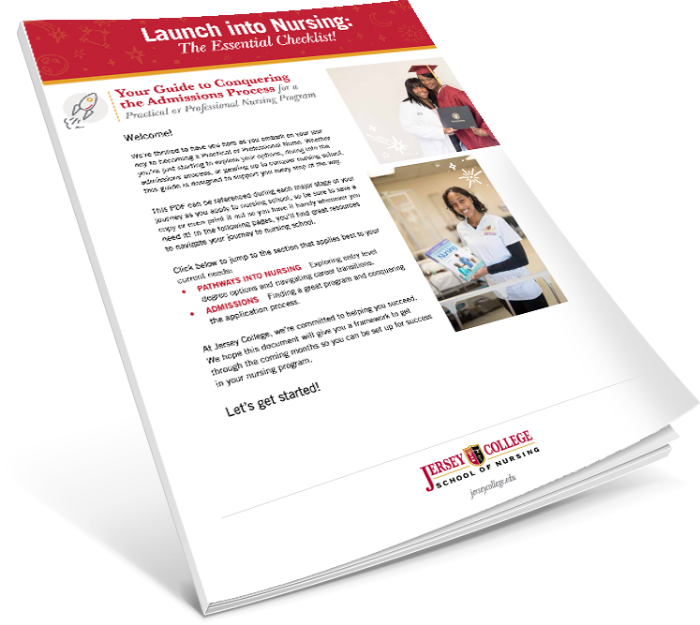
Is Nursing School Hard?
What Makes Nursing School Hard?
There are many factors that make nursing school one of the most challenging programs of study in higher education.
- Subject matter: Nursing school requires a tremendous amount of studying, as students must master complex medical concepts and procedures, develop advanced critical thinking, learn how to communicate effectively with patients and colleagues, and stay up-to-date on the latest research and best practices in healthcare. The academic rigor of nursing school is demanding, with courses that cover a broad range of topics across many different scientific foundations
- Time management: Effective time management is a key element of success for students in a nursing program, as there are academic requirements and professional clinical requirements on top of the maintenance of a personal life. Work/life balance can be particularly challenging for those who are also working or raising a family at the same time that they are pursuing a nursing degree.
- Workload: Nursing school is characterized by a fast-paced schedule, with students required to complete a significant amount of coursework and clinical hours within a relatively short period of time.
What Can Impact the Difficulty of Nursing School
Several factors can impact how difficult nursing school is for each individual student. One of the biggest factors is the student's personal level of preparedness and academic background, as those with a strong foundation in science and mathematics may find certain aspects of nursing school easier to master. Additionally, the specific nursing program and the curriculum it offers can also play a role in the level of difficulty.
The nursing programs available at Jersey College offer different levels of complexity, although it isn’t necessarily a matter of which program is ‘easier’ than the other. The LPN program is shorter than the RN program, but that doesn’t necessarily mean that it is easier since the entirety of the program needs to be condensed into a single year. Meanwhile, the RN program has the benefit of added time but also the higher degree of technical complexity.
For a more thorough comparison, read the LPN vs. RN article in our Nursing School Guide.
Program length is subject to change and is determined based on a number of factors, including, but not limited to: (i) pace of completion, (ii) quantity of credits taken per term, (iii) repeats of coursework, and (iv) leaves.

FREE Essential Guide to Nursing School: Get Accepted, Survive, and Thrive!
Clinicals: How Hard Are They?
Potentially the most challenging and rewarding aspect of nursing school is the clinical component. Clinical rotations are an essential part of nursing education, providing students with hands-on experience working directly with patients under the guidance of experienced nurses and clinical instructors.
Clinicals can be a challenging experience for nursing students because they require students to work long hours and navigate complex patient care situations. However, they are also incredibly rewarding, allowing students to apply the knowledge they've gained in the classroom to real-world scenarios and to further develop their clinical skills. Successful completion of clinicals is often a key factor in whether students pass or fail nursing school, making them a critical component of the nursing education experience.

Tips to Get Through Nursing School
While nursing school can be challenging, there are several strategies and tips that students can use to help them succeed.
Time Management
First and foremost, effective time management is fundamental when it comes to completing any nursing program with confidence. A well-organized schedule would be very helpful for balancing all of the different requirements and responsibilities of a nursing student.
Health
It's also important to take care of your personal health and wellness during nursing school. You should make time to exercise and spend time outside away from any kind of work. In addition, putting extra effort into a healthy diet and a healthy sleep schedule is incredibly helpful to your overall well-being.
Study Habits
In addition, students should develop effective study habits that work for them, whether it's using flashcards, taking notes, or creating study groups with classmates. To manage the academic rigor of nursing school, students should take advantage of available resources such as tutoring, office hours, and study guides.
Reach Out
Finally, when it comes to clinical rotations, students should be prepared to work hard and learn from experienced nurses. Don’t be afraid to ask for help when you need it. Be sure to also take the time to reflect on your own experiences so far and ask your professors questions when necessary.
By using these strategies and tips, students can overcome the challenges of nursing school and thrive in this rewarding and essential field.

Sign up to get new articles in your inbox and stay updated on our nursing programs.
Why Nursing School is Worth It
While nursing school is undoubtedly challenging, the benefits of a career in nursing make it a worthwhile endeavor. Nursing is a highly respected and in-demand profession, with the Bureau of Labor Statistics projecting employment of registered nurses to grow 6% from 2023 to 2033, which is roughly in line with similar job growth rate for other occupations. This exceptional job growth is due in part to a number of factors, including an aging population as well as the continued growth of the healthcare industry at large. Nurses also enjoy a high level of job security and a potentially lucrative salary, with the median annual wage for registered nurses at $77,600 as of May 2021.
In addition to the financial benefits, nursing can be a deeply rewarding career that allows individuals to make a positive impact on the lives of others. It is a unique privilege of nurses to extend compassion to patients that may earnestly appreciate and need it. This emotional connection with patients and the ability to make a difference in their lives is one of the most fulfilling aspects of a career in nursing.
Finally, nursing offers a diverse range of career trajectories, with opportunities for advancement into leadership roles, specialized fields, and advanced practice. For those willing to put in the effort to complete nursing school, the benefits of a nursing career can make it well worth the challenge.
Related Resources
Be sure to explore our full Nursing School Guide for more insights into surviving and thriving before, during, and after nursing school!
FAQs
- How hard is it to pass the NCLEX®?
The NCLEX (National Council Licensure Examination) is a standardized exam that is required for licensure as a registered nurse in the United States. The exam is designed to be difficult, and the questions are often complex and require a deep understanding of nursing concepts and principles. However, completing a strong nursing program can provide you with the tools you need to successfully complete the exam.
There are many resources available online to help you best prepare for NCLEX, including our own NCLEX exam guide.
- How hard Is nursing compared to other degrees? Is it harder than other majors?
Nursing is a field that requires a significant amount of study, time management, and clinical experience. While it is difficult to compare the difficulty of nursing to other degree programs, nursing is often cited as one of the more challenging and rigorous undergraduate programs due to its combination of classroom learning and clinical experience.
Nursing students must learn a wide range of medical terminology, pharmacology, and anatomy, as well as develop clinical reasoning and critical thinking skills that allow them to provide safe and effective patient care. In addition to the academic and clinical requirements, nursing students must also balance their studies with personal and professional responsibilities.
While nursing may be challenging, it is also an incredibly rewarding field that offers opportunities to make a positive impact on the lives of others.
- How many years does it typically take to become a nurse?
The amount of time it takes to become a nurse can differ, depending on the educational path chosen. Completing an Associate Degree in Nursing (ADN) program can typically be completed in two to three years. Alternatively, earning a Bachelor of Science in Nursing (BSN) degree typically takes four years to complete. Some nursing programs may require additional prerequisite coursework, which can add to the length of time it takes to complete the program.
For those who wish to become advanced practice nurses, such as nurse practitioners or clinical nurse specialists, additional education and certification is required. This can add several more years of education and training to the process.
Program length is subject to change and is determined based on a number of factors, including, but not limited to: (i) pace of completion, (ii) quantity of credits taken per term, (iii) repeats of coursework, and (iv) leaves.
Find Your Campus
Based on the success of our programs, we have grown to serve communities in 7 states (and counting!). Find a campus near you to start your NurseLife.

FREE Essential Guide to Nursing School: Get Accepted, Survive, and Thrive!
